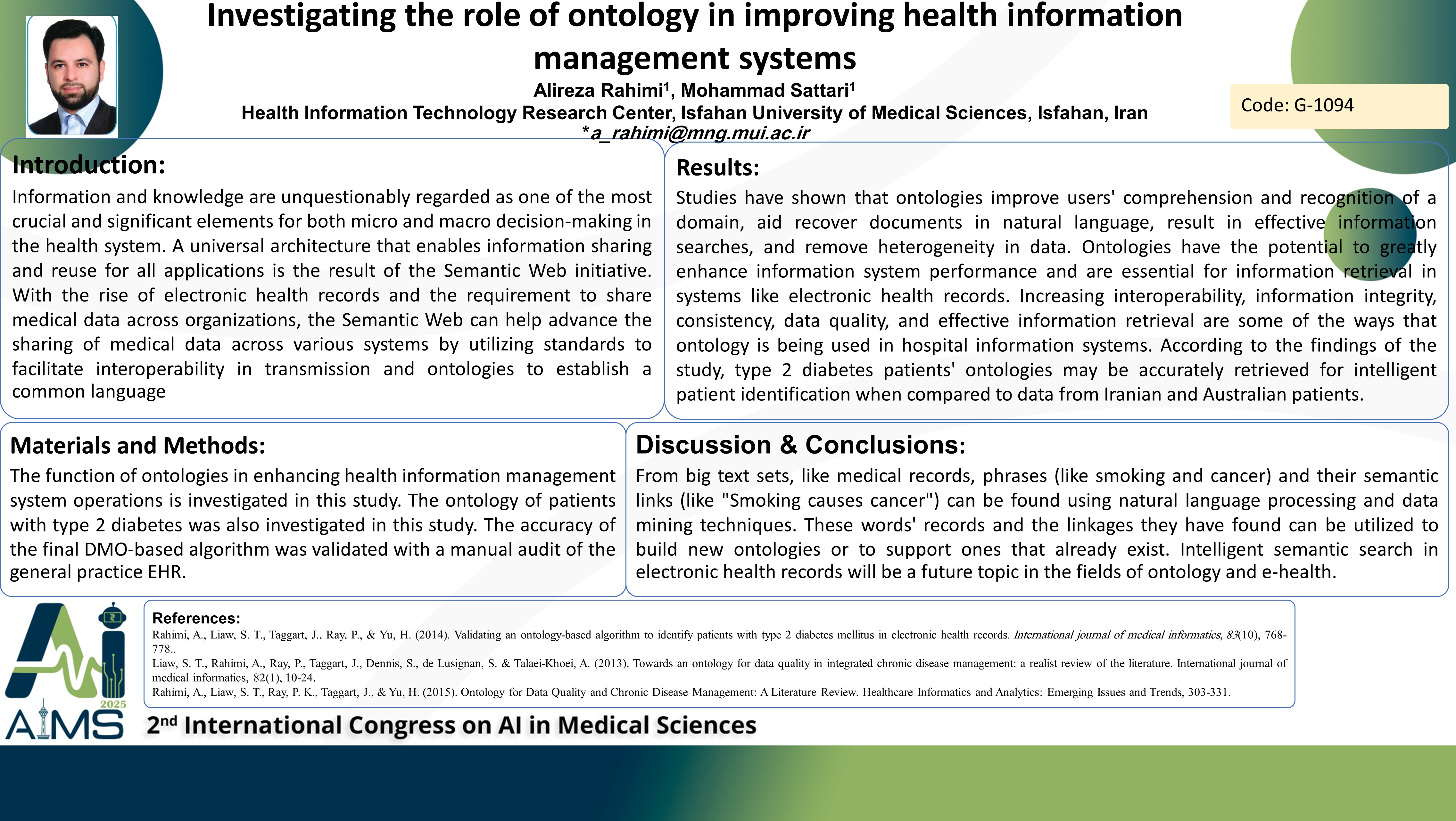Investigating the role of ontology in improving health information management systems
Code: G-1094
Authors: Alireza Rahimi * ℗, محمد ستاری
Schedule: Not Scheduled!
Tag: Clinical Decision Support System
Download: Download Poster
Abstract:
Abstract
Background and aims: Information and knowledge are unquestionably regarded as one of the most crucial and significant elements for both micro and macro decision-making in the health system. A universal architecture that enables information sharing and reuse for all applications is the result of the Semantic Web initiative. With the rise of electronic health records and the requirement to share medical data across organizations, the Semantic Web can help advance the sharing of medical data across various systems by utilizing standards to facilitate interoperability in transmission and ontologies to establish a common language Method: The function of ontologies in enhancing health information management system operations is investigated in this study. The ontology of patients with type 2 diabetes was also investigated in this study. The accuracy of the final DMO-based algorithm was validated with a manual audit of the general practice EHR. Results: Studies have shown that ontologies improve users' comprehension and recognition of a domain, aid recover documents in natural language, result in effective information searches, and remove heterogeneity in data. Ontologies have the potential to greatly enhance information system performance and are essential for information retrieval in systems like electronic health records. Increasing interoperability, information integrity, consistency, data quality, and effective information retrieval are some of the ways that ontology is being used in hospital information systems. According to the findings of the study, type 2 diabetes patients' ontologies may be accurately retrieved for intelligent patient identification when compared to data from Iranian and Australian patients.. Conclusion: From big text sets, like medical records, phrases (like smoking and cancer) and their semantic links (like "Smoking causes cancer") can be found using natural language processing and data mining techniques. These words' records and the linkages they have found can be utilized to build new ontologies or to support ones that already exist. Intelligent semantic search in electronic health records will be a future topic in the fields of ontology and e-health.
Keywords
Ontology, Health Information System, Medical, e-Health.
